Surprise is a feeling which often brings out unfiltered, immediate slang responses.
Whatever has surprised you and where ever you are in the world, it’s likely that when something surprises you, you often can’t help but comment on it.
This is certainly true of the British, who have a great and varied lexicon of slang words and phrase for expressing surprise that they might use without even realizing.
Today, we’re going to look at a wide range of these terms.
Let’s get started.
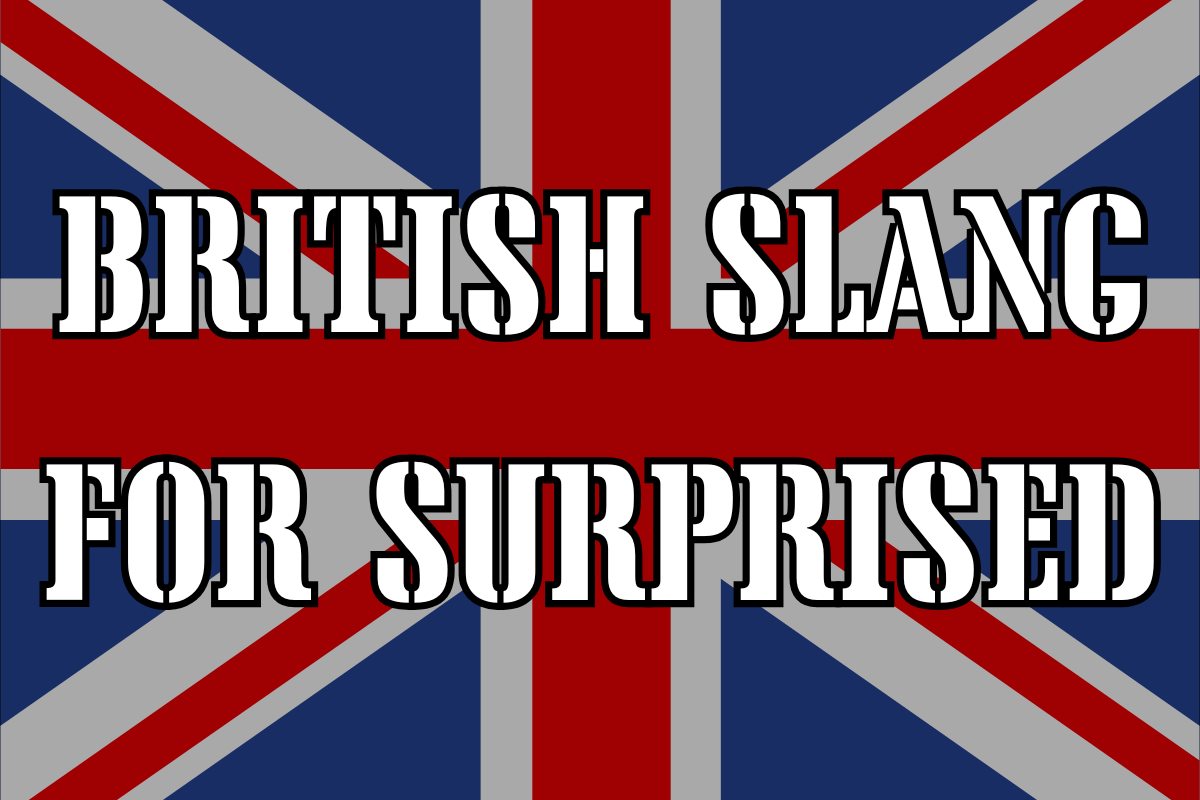
Gobsmacked
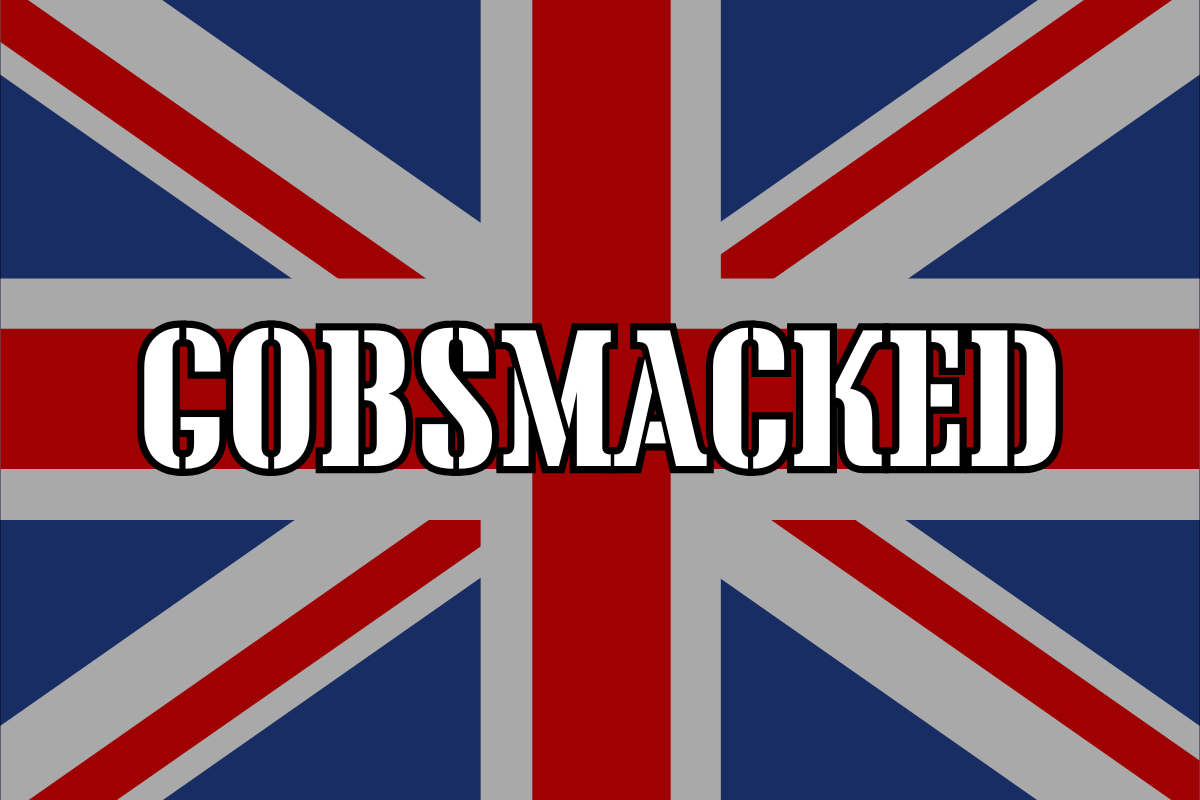
“Gobsmacked” is used throughout Britain, including in England, Scotland, and Wales, and everyone will understand what it means.
For example, “I was absolutely gobsmacked when he said that.” It has been in use since at least 1936, with the first written evidence appearing in that year.
The term “gobsmacked” comes from another piece of British slang, “gob,” meaning mouth.
To be “gobsmacked” literally means to be smacked in the mouth.
The idea behind this is that your surprise is so intense, it’s as if you’ve been struck in the mouth with the force of it!
Examples in sentences:
- “I was absolutely gobsmacked when he said that.”
- “She was gobsmacked when she saw the surprise party.”
- “He stood there, gobsmacked, unable to say anything.”
- “You’re gobsmacked if you’re not used to this kind of shock.”
- “I couldn’t believe it—I was completely gobsmacked!”
Flabbergasted
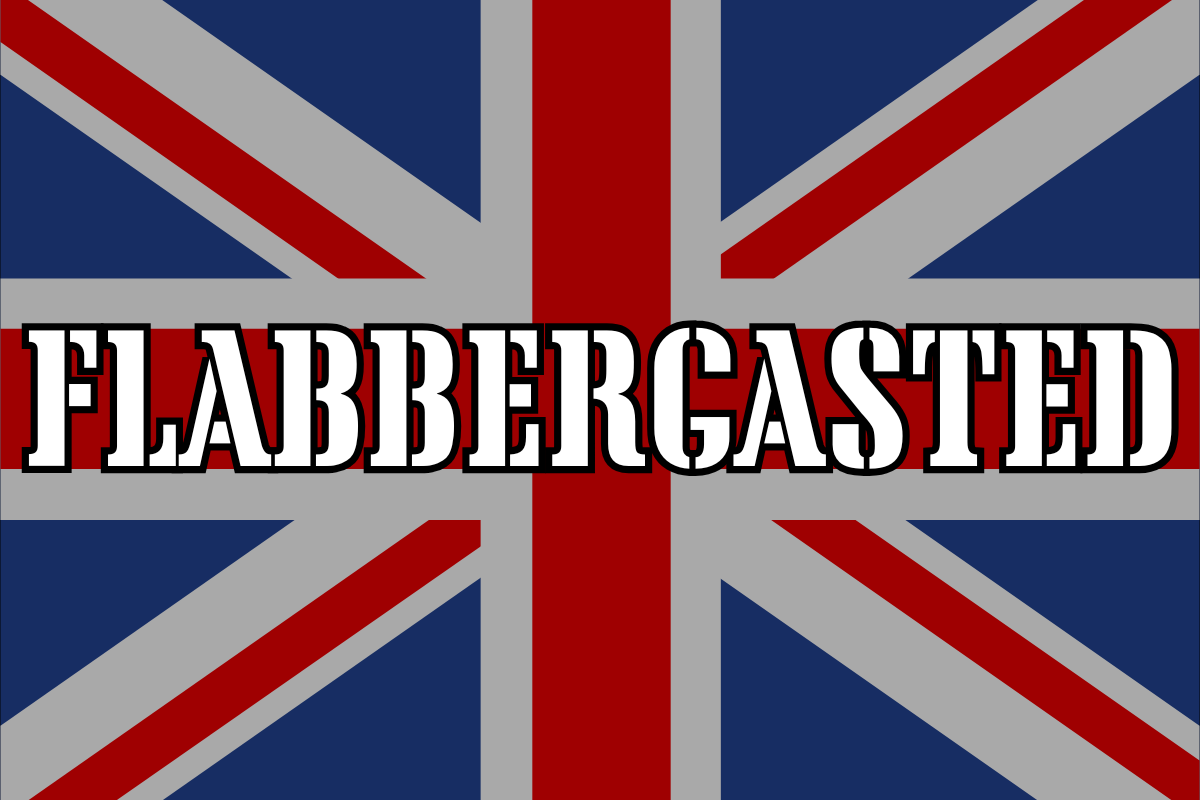
“Flabbergasted” is used throughout Britain and can be heard in casual conversations. For example, “You look completely flabbergasted.” While some consider it a standard term today, it still qualifies as slang in most places due to its informal nature.
The term dates back to a magazine article from 1772, where it was mentioned as a popular new word. It may have originated from Sussex English dialect, with the word “flabbergast” recorded as early as 1823, or it might be etymologically related to words like “flabby,” “flapper,” or “aghast.” The true origins remain uncertain.
Examples in sentences:
- “You look completely flabbergasted.”
- “He was absolutely flabbergasted when he heard the news.”
- “I was flabbergasted by how much she had changed.”
- “She stood there, flabbergasted, unable to respond.”
- “The announcement left everyone flabbergasted.”
Shocked

“Shocked” is a term that can be heard everywhere, not just in Britain, though it is particularly common in British English. For example, “Can you believe that? I’m shocked.” It is a simple yet effective way to express surprise, making it a good addition to your slang repertoire.
The term has been in use for centuries. In the 1590s, it was used to describe being amazed or in a state of wonder. While it can still carry that meaning today, the modern usage of “shocked” likely aligns more with the sense that emerged in the mid-19th century, meaning “scandalized” or deeply surprised in a more negative way.
Examples in sentences:
- “Can you believe that? I’m shocked.”
- “She was absolutely shocked by the sudden announcement.”
- “I’m still shocked by how much things have changed.”
- “He looked shocked when he saw the final result.”
- “The news left everyone in shock.”
Blimey
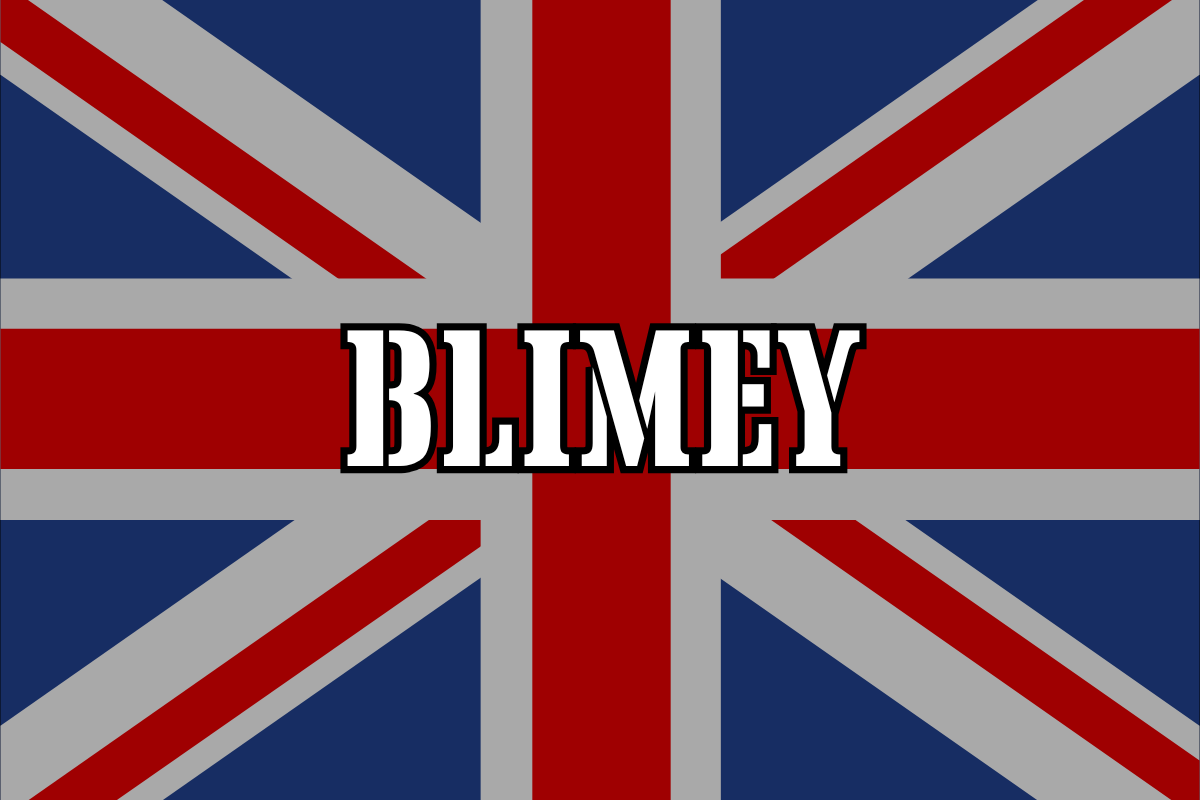
“Blimey” is frequently used in Britain when someone is surprised by something. For example, “Blimey, I didn’t realize how high up we were!” While it can also be used to express exasperation, it’s more often associated with surprise. This word is particularly common in the north of England.
The origin of “blimey” dates back to at least 1889, though its precise roots are unclear. It is widely believed to be a corruption of the older phrase “God blind me!” which would have been used to express surprise, carrying religious connotations. In early slang dictionaries, “blimey” was defined as a term of abuse, but today it is simply an exclamation of surprise.
Examples in sentences:
- “Blimey, I didn’t realize how high up we were!”
- “Blimey, that was a close call!”
- “Blimey, you scared me there!”
- “I can’t believe it, blimey!”
- “Blimey, how did that happen?”
Crikey
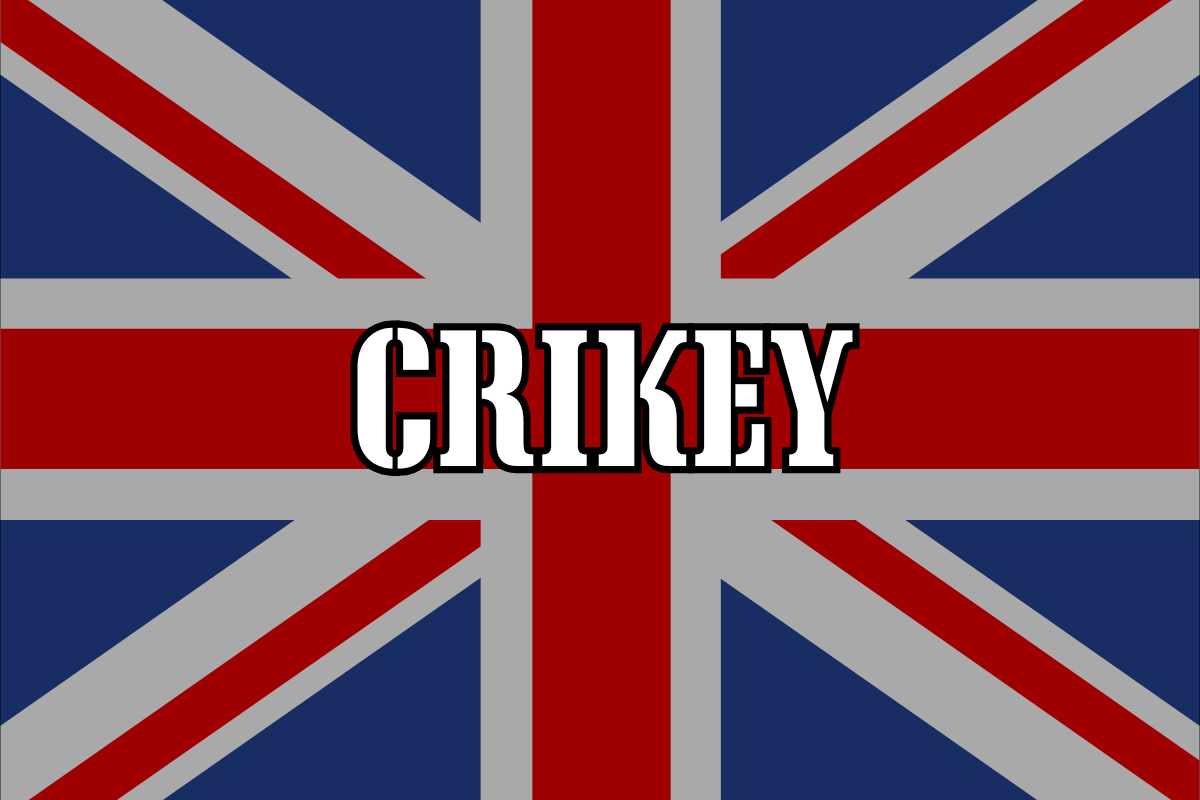
“Crikey” is commonly used in England to express surprise, though it is also well understood in Wales and Scotland. For example, “Crikey, is that all the food that’s left?” It is slightly more widespread than “blimey” but serves a similar function as an exclamation of surprise.
The term “crikey” dates back to 1838 and, like “blimey,” is believed to have originated from religious expressions. It was likely a substitute for the word “Christ,” which, at the time, was considered improper to say in such contexts, as it would have been taking the Lord’s name in vain. While this is the most widely accepted origin, the exact history remains unclear.
Examples in sentences:
- “Crikey, is that all the food that’s left?”
- “Crikey, I didn’t expect to see that!”
- “Crikey, that’s a big change!”
- “I was absolutely shocked—crikey!”
- “Crikey, where did the time go?”
Gosh
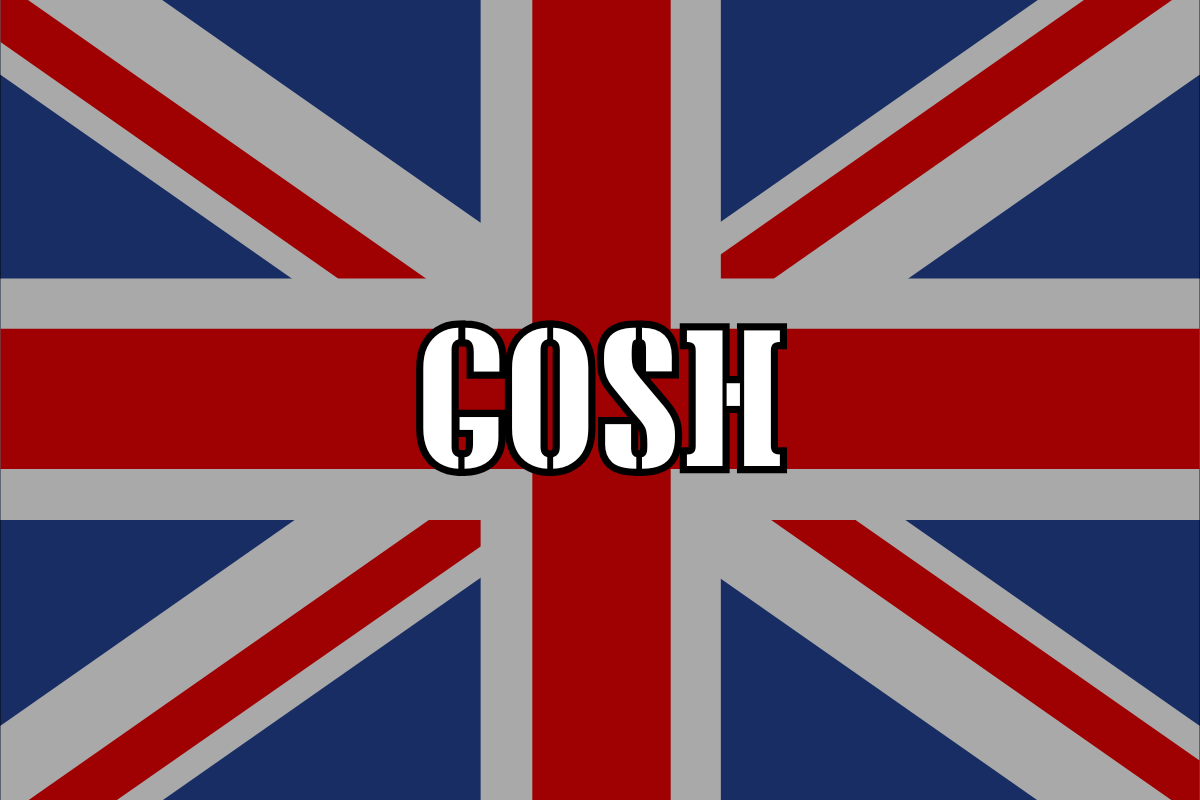
“Gosh” is widely used throughout Britain as an expression of surprise, though it is not exclusive to the region. It’s a gentle reaction to something unexpected, like in the sentence, “Gosh, look at the time, I’d better get going.” It’s a simple, casual exclamation that doesn’t carry the intensity of stronger terms like “gobsmacked” or “flabbergasted.”
The term “gosh” is a “minced oath,” a deliberate alteration of a taboo or blasphemous word. It originated as a softened version of the word “God” and was first recorded in 1757. The phrase likely came from the older expression “by gosse,” used in the 16th Century, and was used to avoid direct invocation of the divine name.
Examples in sentences:
- “Gosh, look at the time, I’d better get going.”
- “Gosh, I didn’t see that coming!”
- “Gosh, I’m so glad you made it!”
- “Oh, gosh, I completely forgot!”
- “Gosh, that was a close one!”
Golly
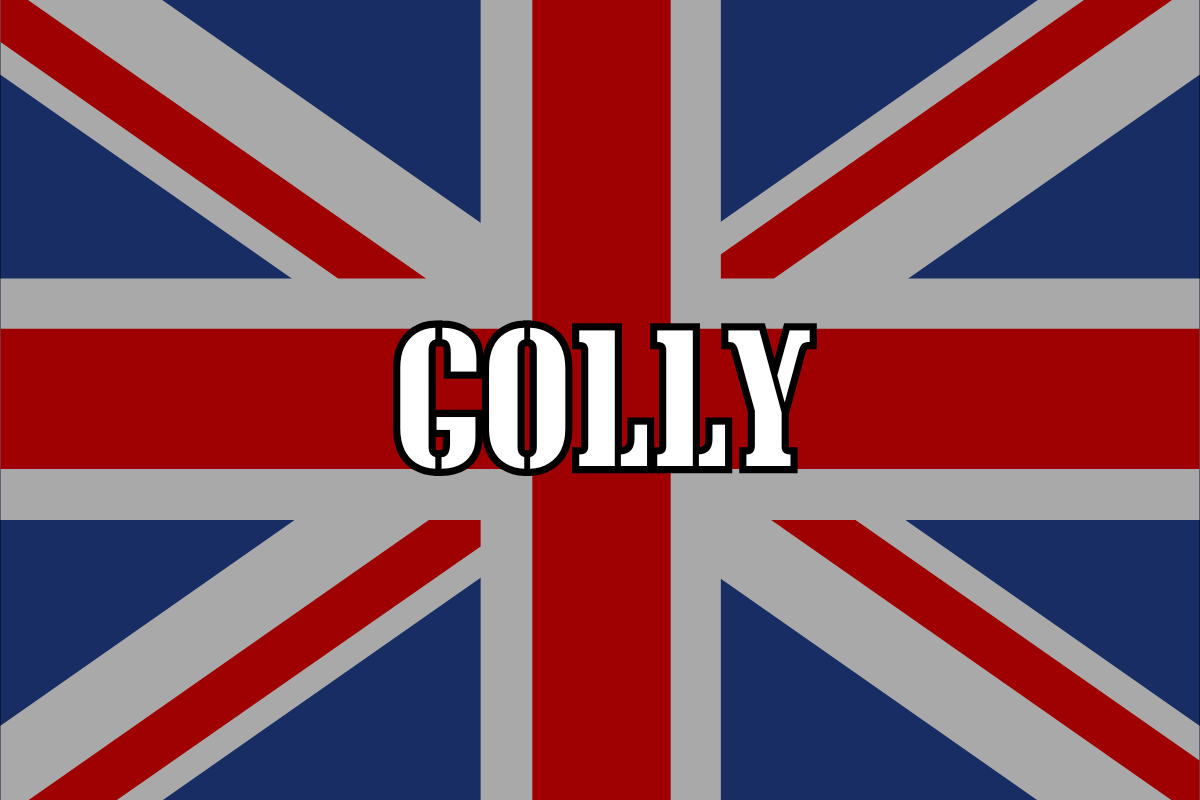
“Golly” is often heard in England, although it can be understood throughout Britain. It’s a casual, somewhat old-fashioned exclamation, used either in a playful or half-earnest way. For example, “Golly, we were out late last night!” It’s generally used to express mild surprise or even delight at something unexpected.
The origin of “golly” is quite similar to “gosh,” as both are “minced oaths,” which are euphemisms used to replace blasphemous or taboo words. “Golly” is a softened version of “God” and was first recorded in 1775 in the journal of Gilbert White. Initially, it was considered slang among the “lowest people” and was not a term used by the upper classes.
Examples in sentences:
- “Golly, we were out late last night!”
- “Golly, that was quite a surprise!”
- “Golly, I didn’t know that was going to happen!”
- “Well, golly, I’m glad you could make it!”
- “Golly, look at the time!”
Blow me down
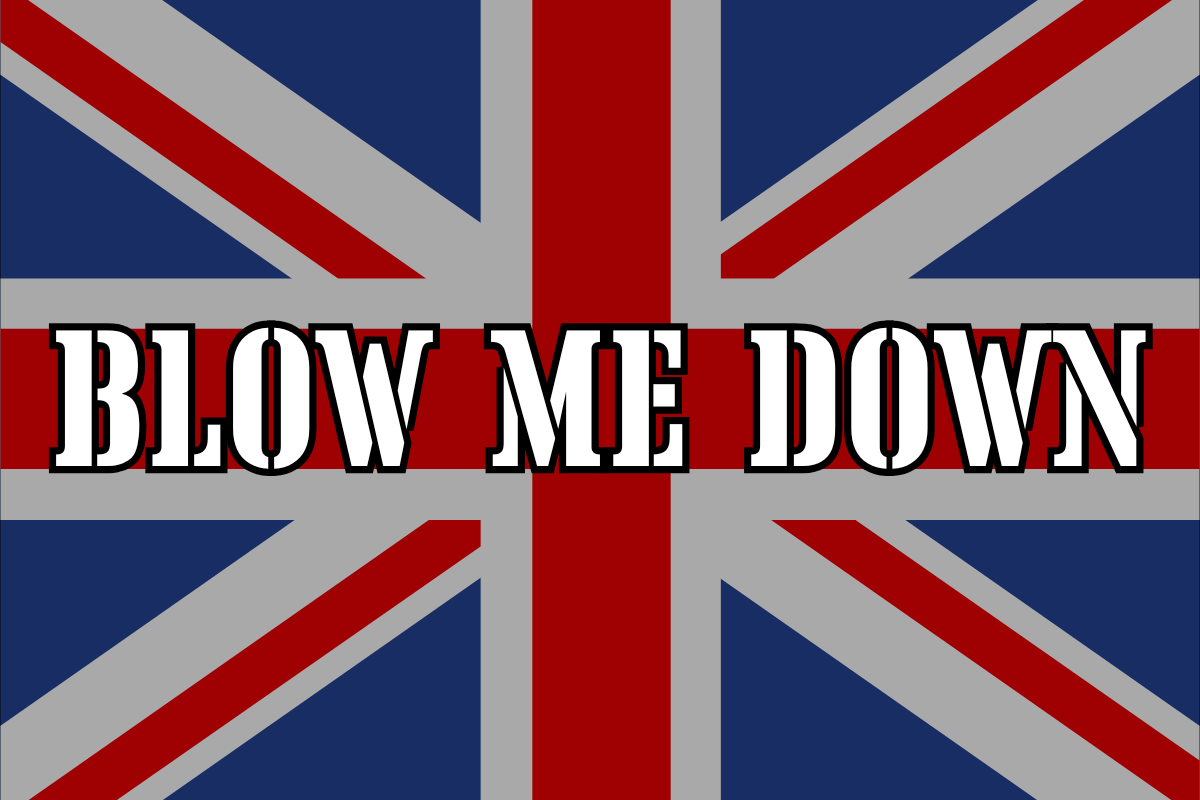
“Blow me down” is a slang term used throughout Britain to express surprise, though it is less common today than many other expressions. For example, “Well, blow me down, I didn’t think we’d make it on time!” It’s typically heard more often among older generations, though younger people will still recognize it.
The origin of “blow me down” is somewhat unclear. It was first recorded in 1848 when it was referred to as a “burlesque oath.” A “burlesque oath” is a type of curse or unsavory expression used to indicate surprise or frustration. Despite its origins, it is no longer as widely used as other surprise expressions, though it is far from extinct.
Examples in sentences:
- “Well, blow me down, I didn’t think we’d make it on time!”
- “Blow me down, that’s the last thing I expected!”
- “Blow me down, what a turn of events!”
- “You could have knocked me over with a feather, blow me down!”
- “Blow me down, I didn’t know she was coming!”
Heavens to Betsy
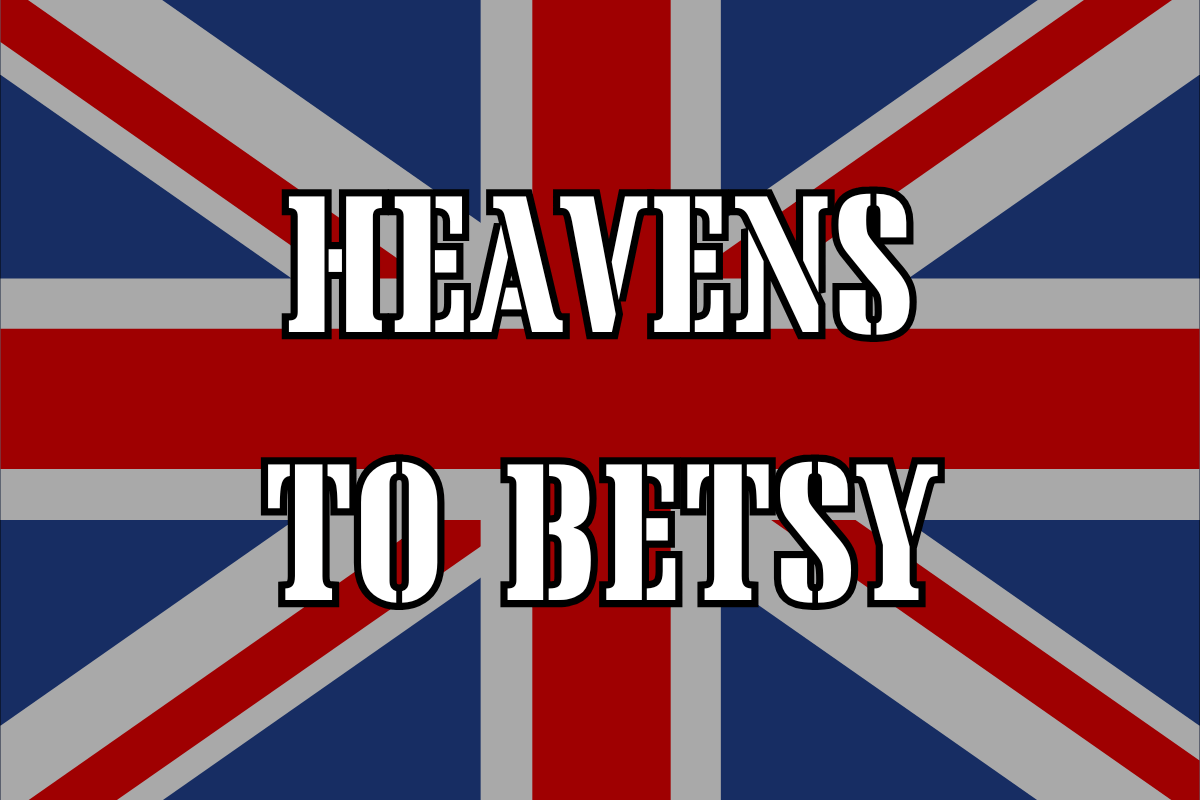
“Heavens to Betsy” is primarily used in England but is recognized elsewhere as well. It’s mostly considered outdated, but some people still use it in a humorous or playful manner. For example, “Heavens to Betsy, look at the traffic!” It’s often used as a lighthearted or exaggerated expression of surprise.
The phrase originated in the United States, first appearing in a journal from 1857. It was later adopted in Britain. While its exact origins are unclear, it is thought to be a “minced oath,” possibly derived from the phrase “hell’s bells,” though there’s no definitive evidence to support this theory. The identity of “Betsy” remains a mystery, and the phrase’s true origins are uncertain.
Examples in sentences:
- “Heavens to Betsy, look at the traffic!”
- “Heavens to Betsy, I didn’t expect that to happen!”
- “Well, heavens to Betsy, that’s a surprise!”
- “Heavens to Betsy, I didn’t see you there!”
- “Oh heavens to Betsy, what a day!”
Well, I never
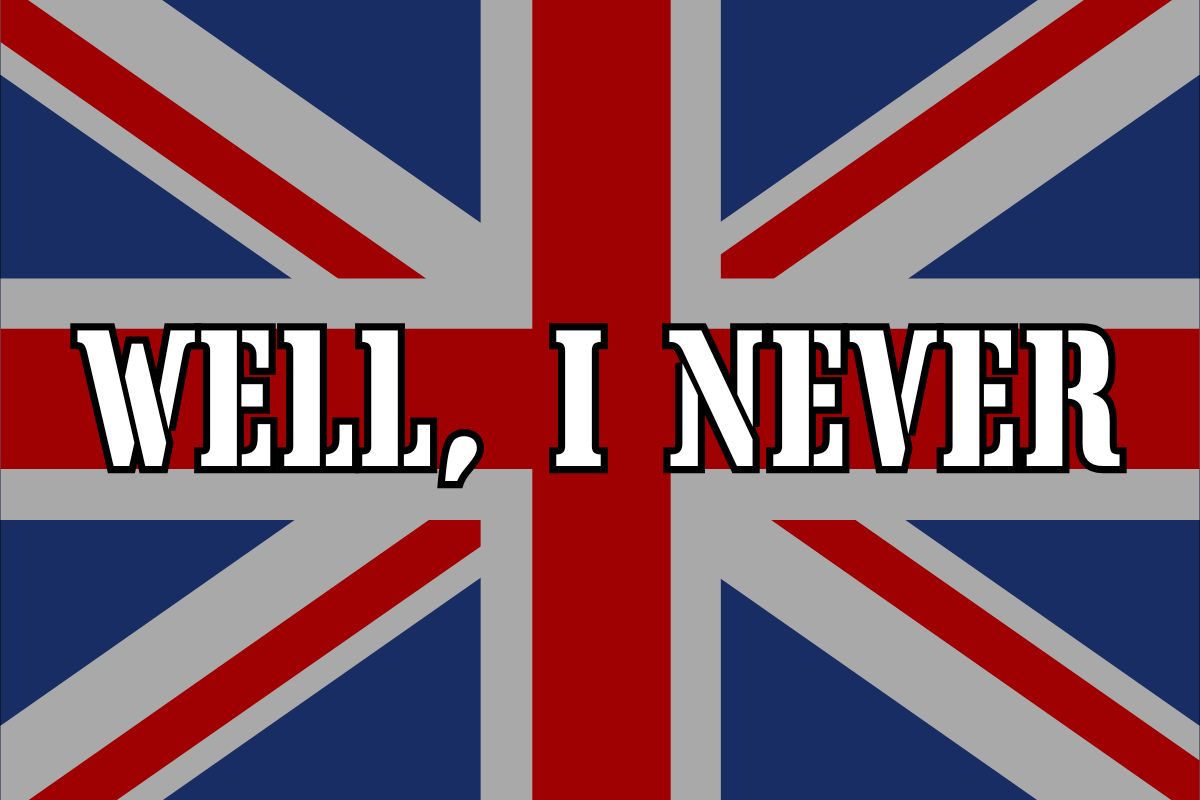
“Well, I never” is a phrase used to express mild surprise or confusion, such as when learning something unexpected. For example, “David and Sarah are dating? Well, I never.” It’s a reserved expression, more commonly used by adults and older generations, but it remains well-understood throughout Britain, including in England, Scotland, and Wales.
The phrase was first recorded in 1832 in a short story by British author Mrs. George Crookshank. While its exact origins are unclear, the expression plainly conveys the sense of “well, I would never have expected that.” It was already a well-established idiom by the time it was first written down.
Examples in sentences:
- “David and Sarah are dating? Well, I never.”
- “Well, I never thought I’d see the day!”
- “Well, I never knew that about her.”
- “Well, I never imagined they’d get married!”
- “Well, I never would have guessed that!”
You’re joking!

“You’re joking!” is widely used throughout Britain to express surprise or disbelief. For example, “The bar is closed? You’re joking!” It’s a response to something that seems unbelievable or shocking, where you express your surprise by suggesting the person is joking, even though you know they aren’t.
This phrase has been in use for a long time and seems to date back at least to the 19th century. It’s commonly heard in England, but it is understood and used throughout Britain, though it’s more often heard among older generations. Despite this, it remains a widely recognized and understood phrase today.
Examples in sentences:
- “The bar is closed? You’re joking!”
- “You’re joking! That can’t be true!”
- “You’re joking, right? No way!”
- “You’re joking! I didn’t think she would win!”
- “You’re joking, that’s unbelievable!”
Fancy that
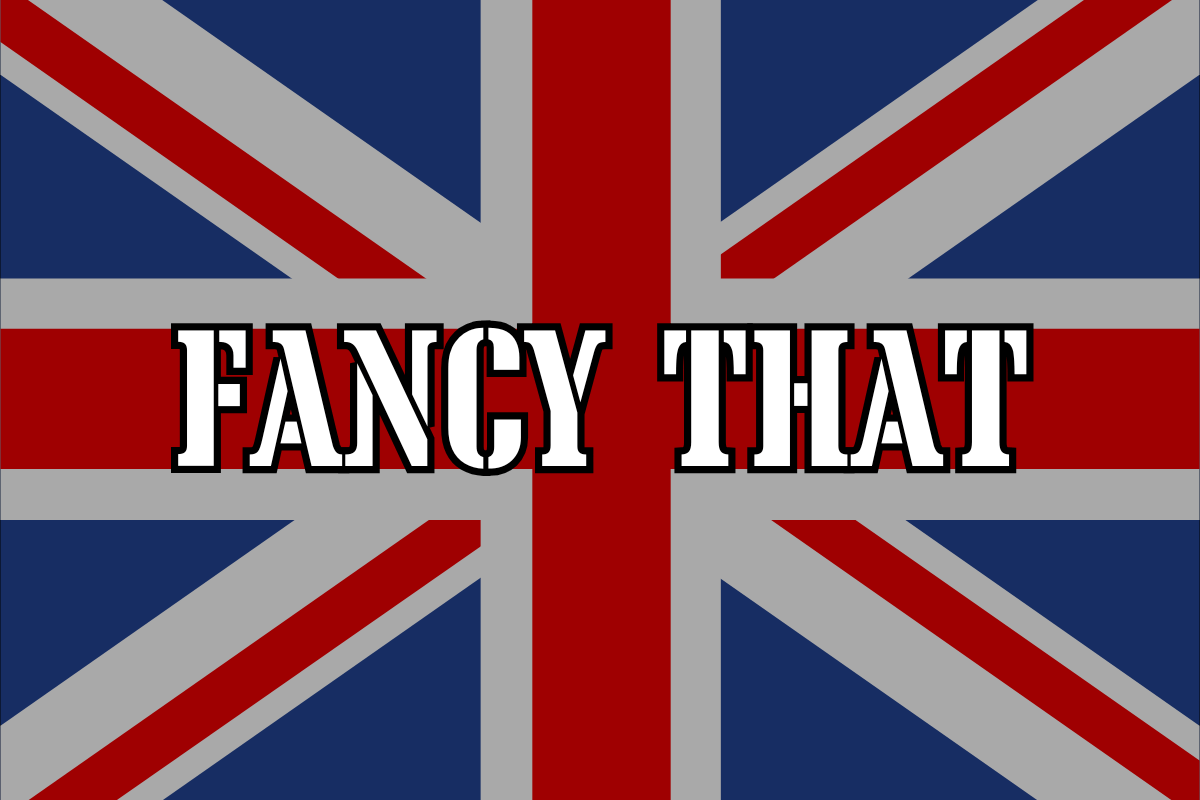
“Fancy that” is a British phrase often used to express mild surprise or interest. For example, “Well, fancy that, a red squirrel!” It’s a casual exclamation used to indicate something surprising, though not in an overly dramatic way. While it’s more commonly heard among older generations, the phrase is still understood by people of all ages.
The phrase “fancy that” dates back to the mid-17th century. Originally, it had a more specific meaning, often referring to an action resulting from a whim or fancy. Over time, it evolved into a more general expression of surprise, and it has continued to be used through the years.
Examples in sentences:
- “Well, fancy that, a red squirrel!”
- “Fancy that, I never thought I’d see you here!”
- “Fancy that, I didn’t know he was back in town!”
- “Well, fancy that, she’s got a promotion!”
- “Fancy that, it’s already time to go!”
When it comes to expressing surprise, then, you can be as polite or as impolite as you wish.
As I said, for many of us, being surprised often brings out this side of us even if it might not normally show.
That said, there are plenty of ways you can express surprise without having to turn to light profanity—use any one of these phrases in Britain and everyone will know you’re expressing surprise.

